Professional English Language WEEK-3 Prof. Dr. Yüksel KÖSEOĞLU
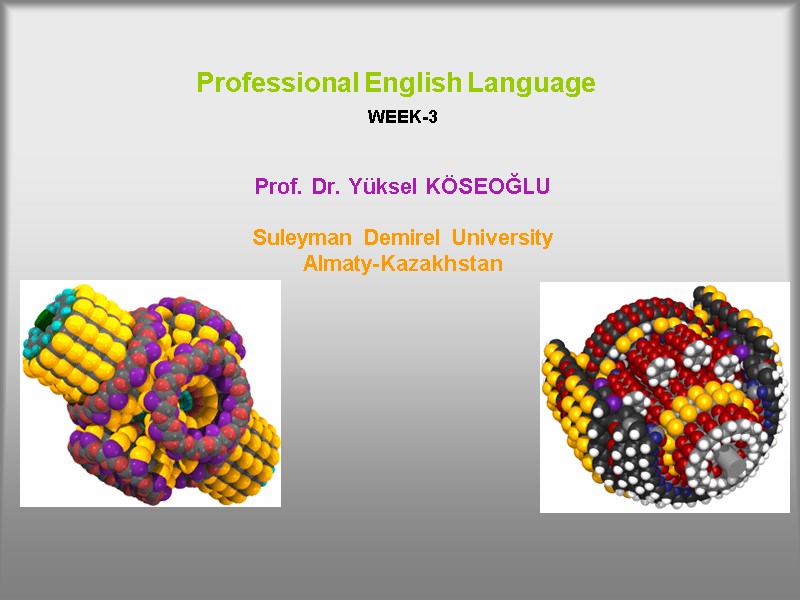
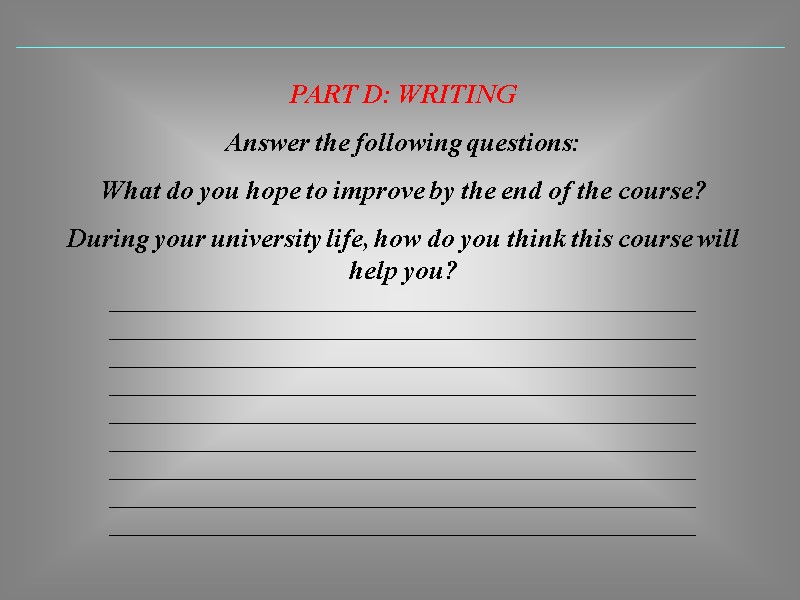
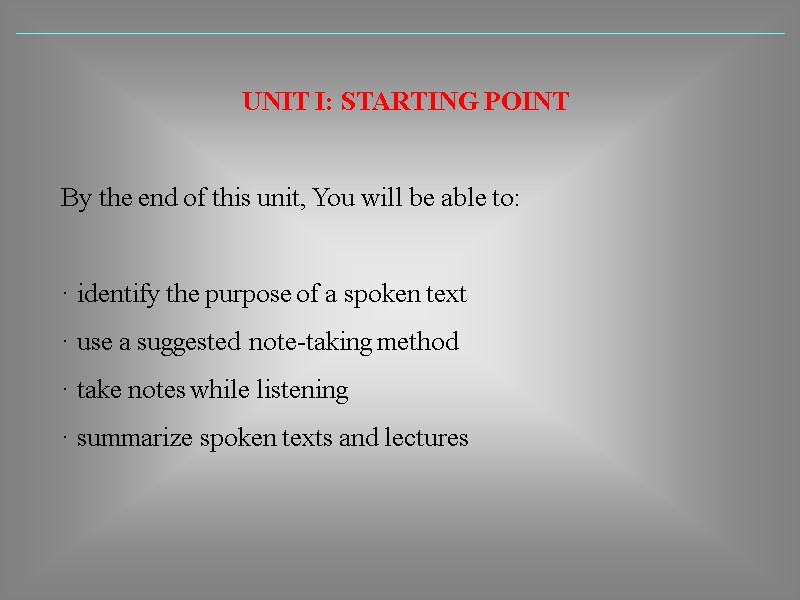
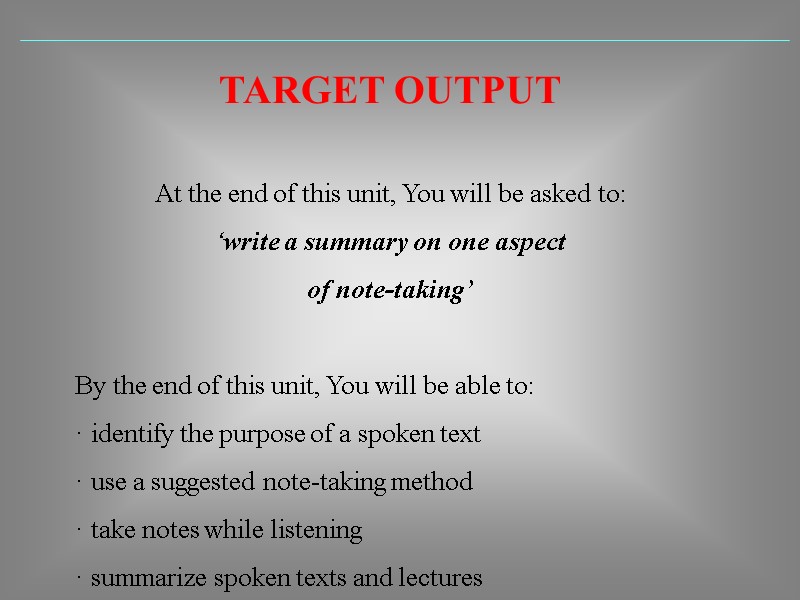
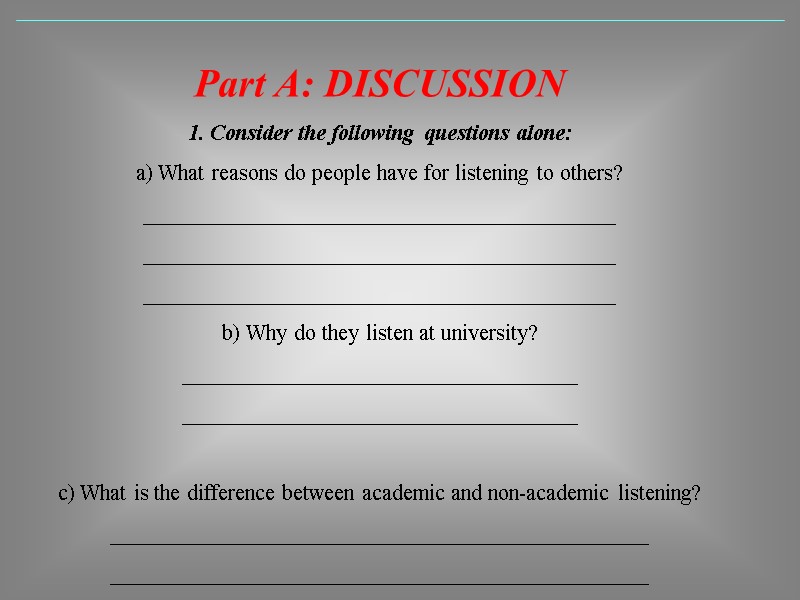
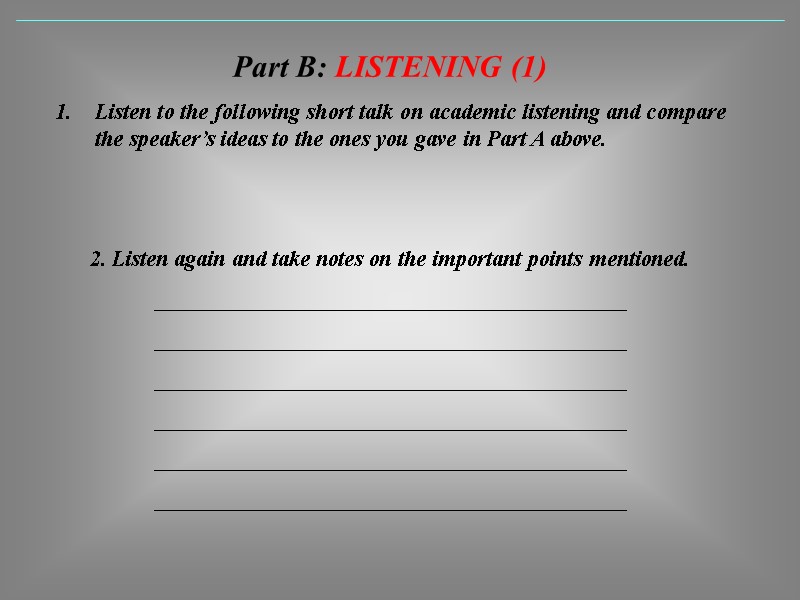
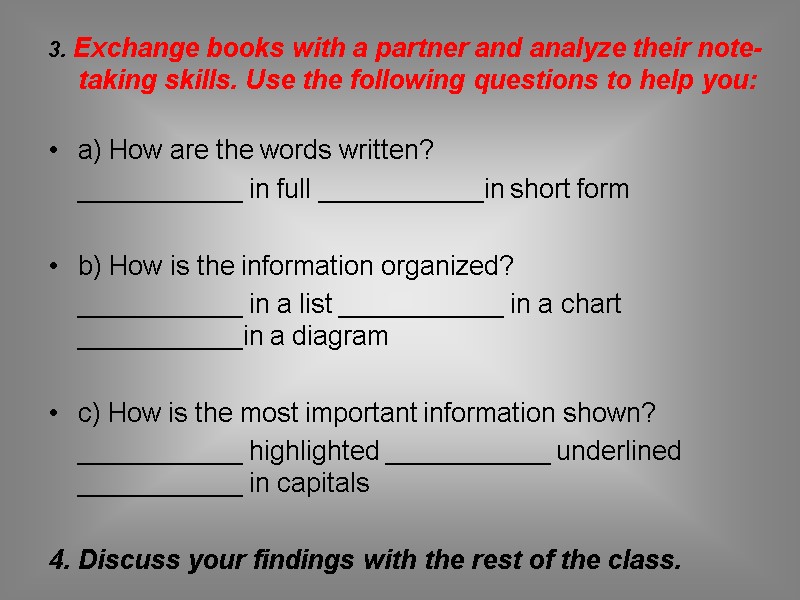
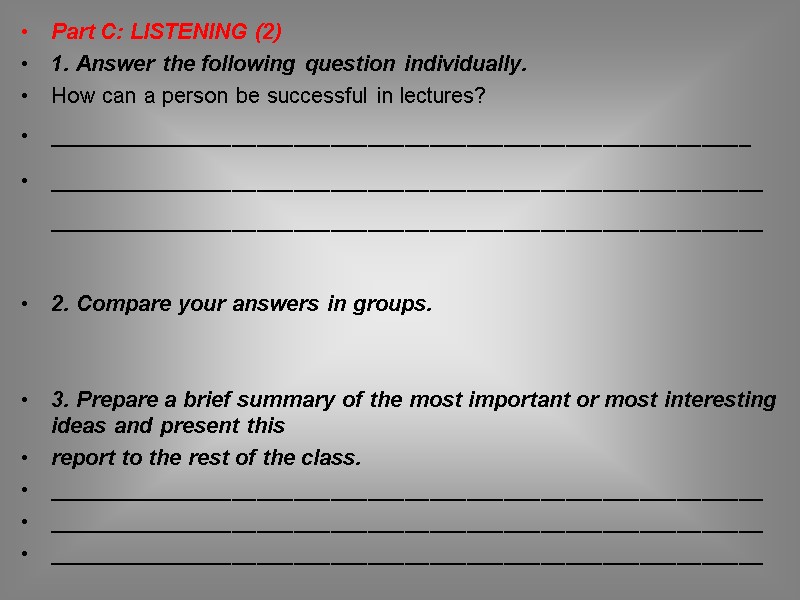
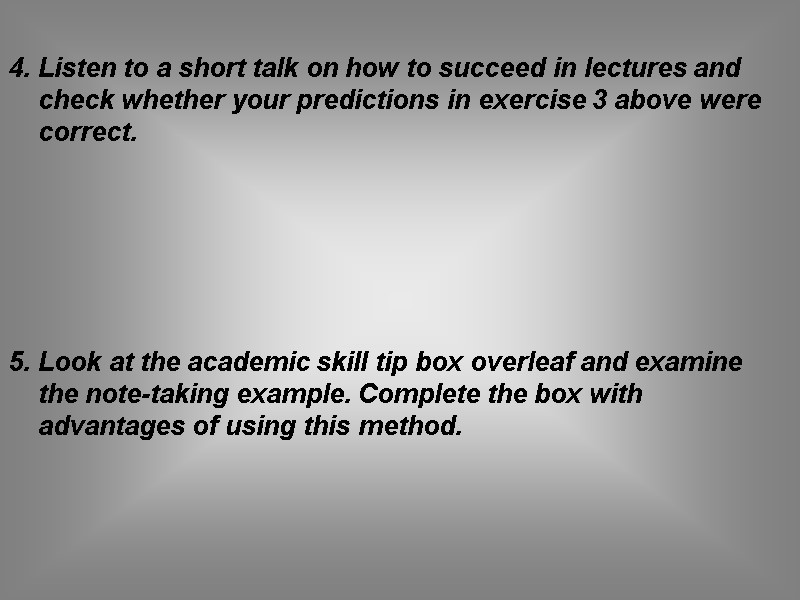
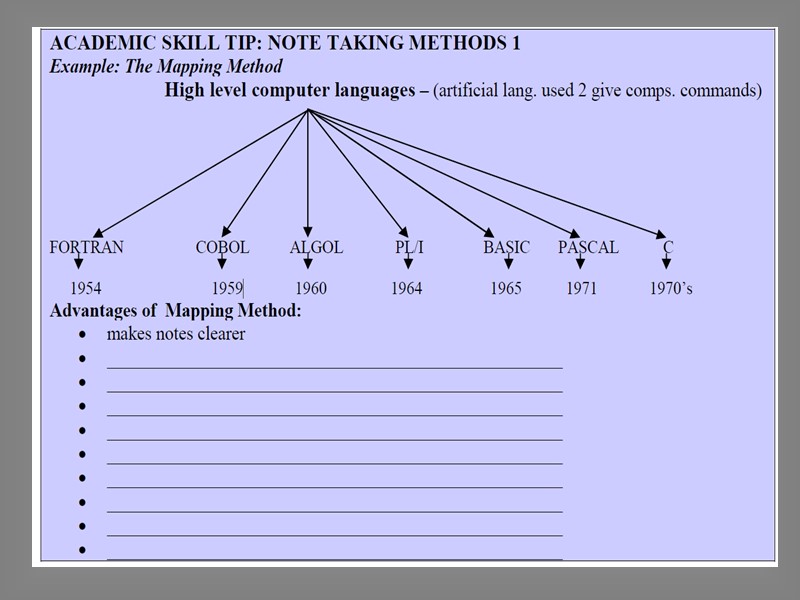
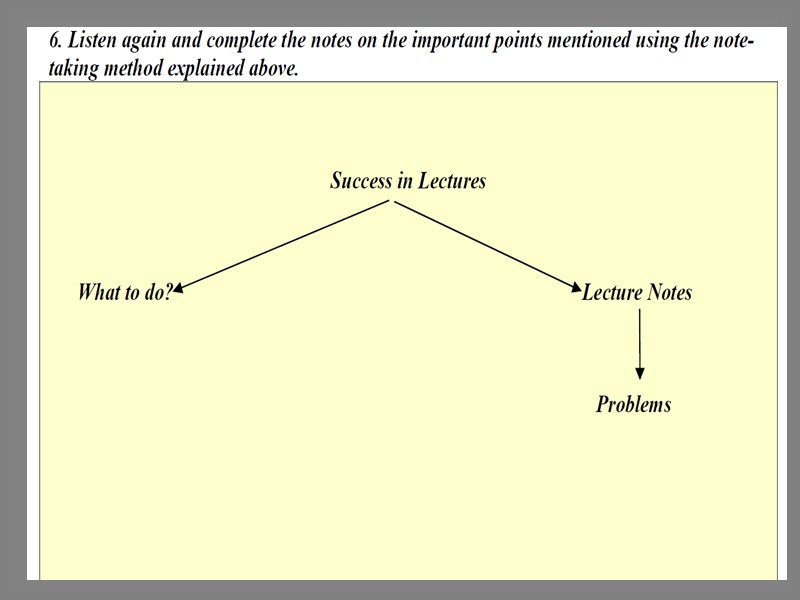

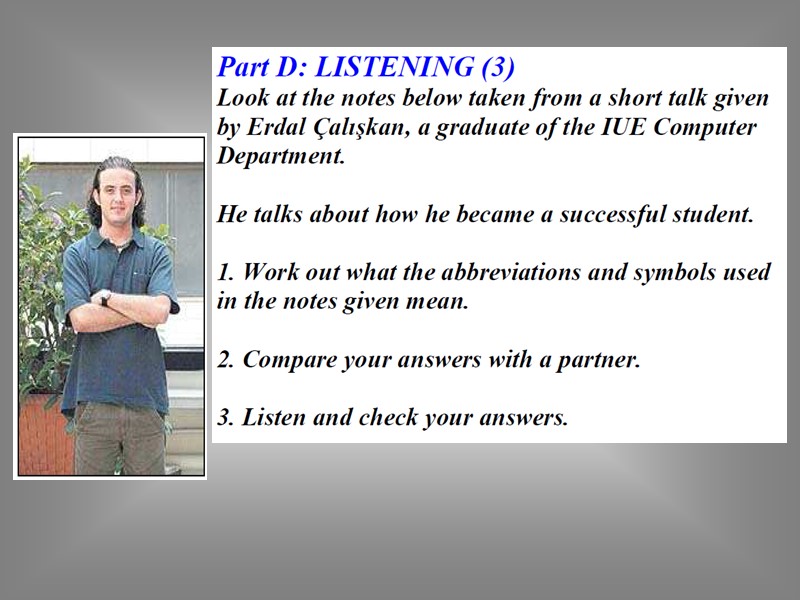
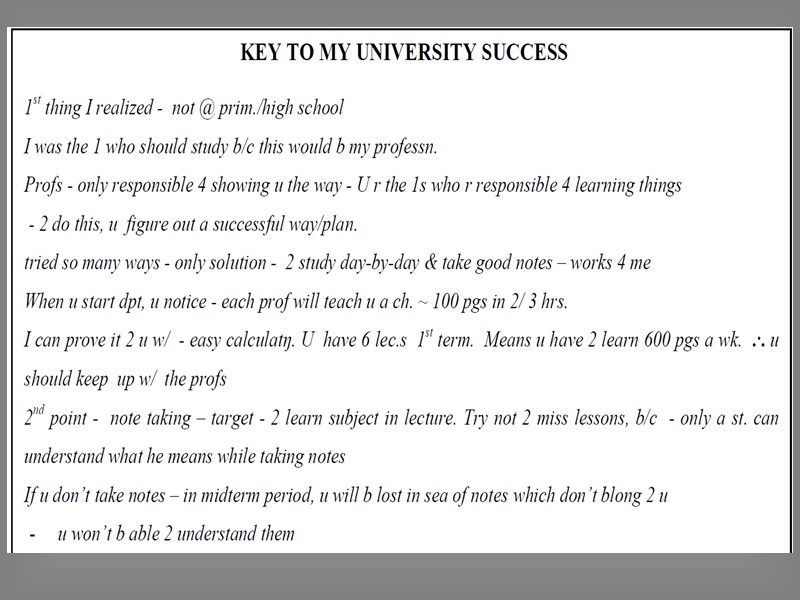
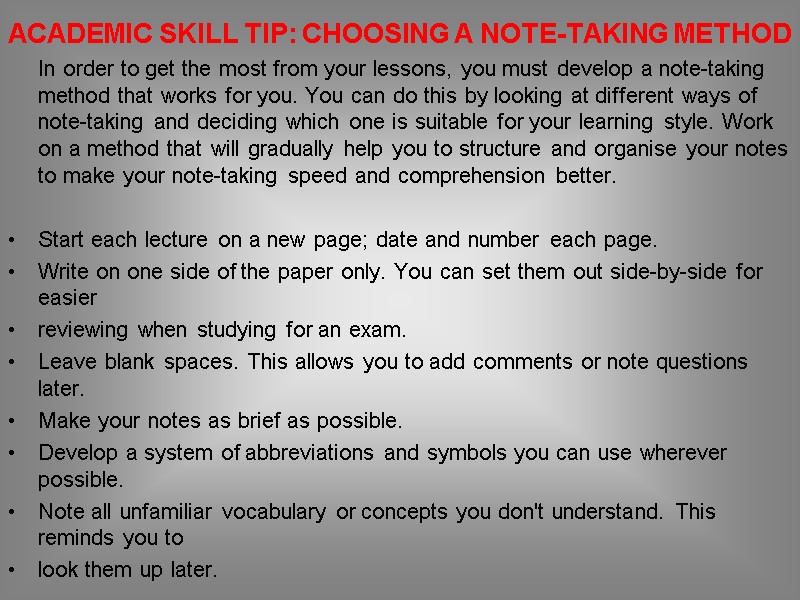
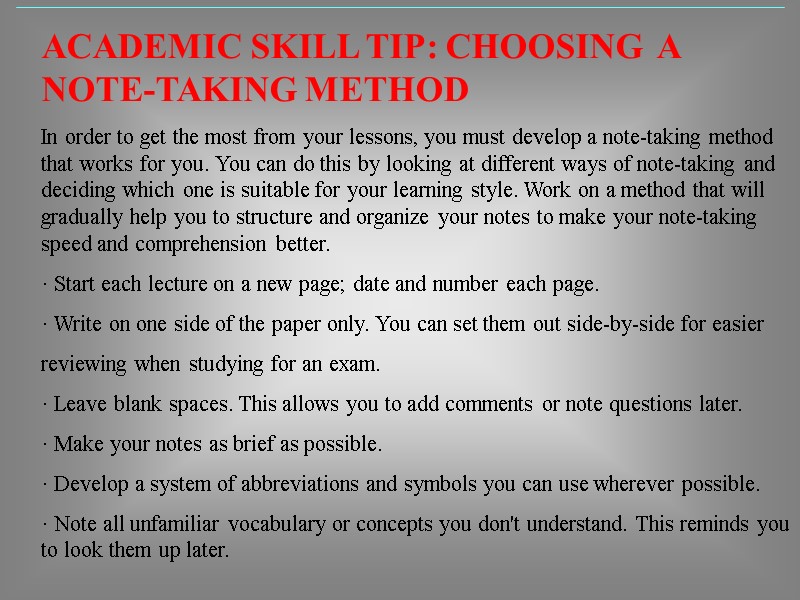

22792-week-3.ppt
- Количество слайдов: 17
 Professional English Language WEEK-3 Prof. Dr. Yüksel KÖSEOĞLU Suleyman Demirel University Almaty-Kazakhstan
Professional English Language WEEK-3 Prof. Dr. Yüksel KÖSEOĞLU Suleyman Demirel University Almaty-Kazakhstan
 PART D: WRITING Answer the following questions: What do you hope to improve by the end of the course? During your university life, how do you think this course will help you? ___________________________________________________________________________ ___________________________________________________________________________ ___________________________________________________________________________ ___________________________________________________________________________ ___________________________________________________________________________ ___________________________________________________________________________ ___________________________________________________________________________ ___________________________________________________________________________ ___________________________________________________________________________
PART D: WRITING Answer the following questions: What do you hope to improve by the end of the course? During your university life, how do you think this course will help you? ___________________________________________________________________________ ___________________________________________________________________________ ___________________________________________________________________________ ___________________________________________________________________________ ___________________________________________________________________________ ___________________________________________________________________________ ___________________________________________________________________________ ___________________________________________________________________________ ___________________________________________________________________________
 UNIT I: STARTING POINT By the end of this unit, You will be able to: · identify the purpose of a spoken text · use a suggested note-taking method · take notes while listening · summarize spoken texts and lectures
UNIT I: STARTING POINT By the end of this unit, You will be able to: · identify the purpose of a spoken text · use a suggested note-taking method · take notes while listening · summarize spoken texts and lectures
 TARGET OUTPUT At the end of this unit, You will be asked to: ‘write a summary on one aspect of note-taking’ By the end of this unit, You will be able to: · identify the purpose of a spoken text · use a suggested note-taking method · take notes while listening · summarize spoken texts and lectures
TARGET OUTPUT At the end of this unit, You will be asked to: ‘write a summary on one aspect of note-taking’ By the end of this unit, You will be able to: · identify the purpose of a spoken text · use a suggested note-taking method · take notes while listening · summarize spoken texts and lectures
 Part A: DISCUSSION 1. Consider the following questions alone: a) What reasons do people have for listening to others? ___________________________________________ ___________________________________________ ___________________________________________ b) Why do they listen at university? ____________________________________ ____________________________________ c) What is the difference between academic and non-academic listening? _________________________________________________ _________________________________________________
Part A: DISCUSSION 1. Consider the following questions alone: a) What reasons do people have for listening to others? ___________________________________________ ___________________________________________ ___________________________________________ b) Why do they listen at university? ____________________________________ ____________________________________ c) What is the difference between academic and non-academic listening? _________________________________________________ _________________________________________________
 Part B: LISTENING (1) Listen to the following short talk on academic listening and compare the speaker’s ideas to the ones you gave in Part A above. 2. Listen again and take notes on the important points mentioned. ___________________________________________ ___________________________________________ ___________________________________________ ___________________________________________ ___________________________________________ ___________________________________________
Part B: LISTENING (1) Listen to the following short talk on academic listening and compare the speaker’s ideas to the ones you gave in Part A above. 2. Listen again and take notes on the important points mentioned. ___________________________________________ ___________________________________________ ___________________________________________ ___________________________________________ ___________________________________________ ___________________________________________
 3. Exchange books with a partner and analyze their note-taking skills. Use the following questions to help you: a) How are the words written? ___________ in full ___________in short form b) How is the information organized? ___________ in a list ___________ in a chart ___________in a diagram c) How is the most important information shown? ___________ highlighted ___________ underlined ___________ in capitals 4. Discuss your findings with the rest of the class.
3. Exchange books with a partner and analyze their note-taking skills. Use the following questions to help you: a) How are the words written? ___________ in full ___________in short form b) How is the information organized? ___________ in a list ___________ in a chart ___________in a diagram c) How is the most important information shown? ___________ highlighted ___________ underlined ___________ in capitals 4. Discuss your findings with the rest of the class.
 Part C: LISTENING (2) 1. Answer the following question individually. How can a person be successful in lectures? _________________________________________________________ ____________________________________________________________________________________________________________________ 2. Compare your answers in groups. 3. Prepare a brief summary of the most important or most interesting ideas and present this report to the rest of the class. __________________________________________________________ __________________________________________________________ __________________________________________________________
Part C: LISTENING (2) 1. Answer the following question individually. How can a person be successful in lectures? _________________________________________________________ ____________________________________________________________________________________________________________________ 2. Compare your answers in groups. 3. Prepare a brief summary of the most important or most interesting ideas and present this report to the rest of the class. __________________________________________________________ __________________________________________________________ __________________________________________________________
 4. Listen to a short talk on how to succeed in lectures and check whether your predictions in exercise 3 above were correct. 5. Look at the academic skill tip box overleaf and examine the note-taking example. Complete the box with advantages of using this method.
4. Listen to a short talk on how to succeed in lectures and check whether your predictions in exercise 3 above were correct. 5. Look at the academic skill tip box overleaf and examine the note-taking example. Complete the box with advantages of using this method.





 ACADEMIC SKILL TIP: CHOOSING A NOTE-TAKING METHOD In order to get the most from your lessons, you must develop a note-taking method that works for you. You can do this by looking at different ways of note-taking and deciding which one is suitable for your learning style. Work on a method that will gradually help you to structure and organise your notes to make your note-taking speed and comprehension better. Start each lecture on a new page; date and number each page. Write on one side of the paper only. You can set them out side-by-side for easier reviewing when studying for an exam. Leave blank spaces. This allows you to add comments or note questions later. Make your notes as brief as possible. Develop a system of abbreviations and symbols you can use wherever possible. Note all unfamiliar vocabulary or concepts you don't understand. This reminds you to look them up later.
ACADEMIC SKILL TIP: CHOOSING A NOTE-TAKING METHOD In order to get the most from your lessons, you must develop a note-taking method that works for you. You can do this by looking at different ways of note-taking and deciding which one is suitable for your learning style. Work on a method that will gradually help you to structure and organise your notes to make your note-taking speed and comprehension better. Start each lecture on a new page; date and number each page. Write on one side of the paper only. You can set them out side-by-side for easier reviewing when studying for an exam. Leave blank spaces. This allows you to add comments or note questions later. Make your notes as brief as possible. Develop a system of abbreviations and symbols you can use wherever possible. Note all unfamiliar vocabulary or concepts you don't understand. This reminds you to look them up later.
 ACADEMIC SKILL TIP: CHOOSING A NOTE-TAKING METHOD In order to get the most from your lessons, you must develop a note-taking method that works for you. You can do this by looking at different ways of note-taking and deciding which one is suitable for your learning style. Work on a method that will gradually help you to structure and organize your notes to make your note-taking speed and comprehension better. · Start each lecture on a new page; date and number each page. · Write on one side of the paper only. You can set them out side-by-side for easier reviewing when studying for an exam. · Leave blank spaces. This allows you to add comments or note questions later. · Make your notes as brief as possible. · Develop a system of abbreviations and symbols you can use wherever possible. · Note all unfamiliar vocabulary or concepts you don't understand. This reminds you to look them up later.
ACADEMIC SKILL TIP: CHOOSING A NOTE-TAKING METHOD In order to get the most from your lessons, you must develop a note-taking method that works for you. You can do this by looking at different ways of note-taking and deciding which one is suitable for your learning style. Work on a method that will gradually help you to structure and organize your notes to make your note-taking speed and comprehension better. · Start each lecture on a new page; date and number each page. · Write on one side of the paper only. You can set them out side-by-side for easier reviewing when studying for an exam. · Leave blank spaces. This allows you to add comments or note questions later. · Make your notes as brief as possible. · Develop a system of abbreviations and symbols you can use wherever possible. · Note all unfamiliar vocabulary or concepts you don't understand. This reminds you to look them up later.
 Thank You For Your Attention !!! Hammamet- 2013
Thank You For Your Attention !!! Hammamet- 2013
